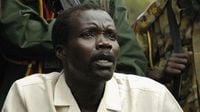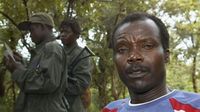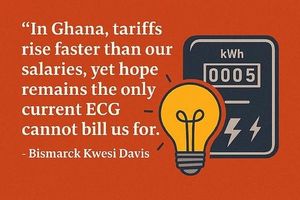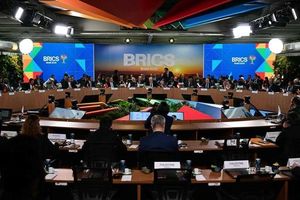On Tuesday, September 9, 2025, the International Criminal Court (ICC) in The Hague made history by opening its first-ever confirmation of charges hearing in absentia, targeting the elusive Ugandan rebel leader Joseph Kony. This unprecedented move comes two decades after Kony and his Lord’s Resistance Army (LRA) gained international notoriety for a brutal campaign of violence across northern Uganda and neighboring countries.
Kony, who has evaded capture since the ICC issued a warrant for his arrest in 2005, faces 39 counts of war crimes and crimes against humanity. The charges stem from atrocities committed during the LRA’s reign of terror between 2002 and 2005, including murder, rape, sexual enslavement, torture, and the abduction of thousands of children forced to become soldiers. According to the United Nations, the LRA’s actions killed at least 100,000 people and displaced about 2.5 million across Africa.
The hearing, expected to last three days, allows ICC prosecutors to present their case before a panel of judges, who will then decide whether to confirm the charges. However, a trial cannot commence unless Kony is apprehended and brought into ICC custody. For now, Kony is represented in absentia by a court-appointed defense lawyer, marking a significant test for the court’s ability to pursue justice when suspects remain at large.
In his opening statements, ICC deputy prosecutor Mame Mandiaye Niang painted a grim picture of the LRA’s legacy. “The social and cultural fabric of Northern Uganda has been torn apart and it is still struggling to rebuild itself,” Niang told the court, as reported by the Associated Press. He underscored how victims continue to be “scarred in their body and spirit,” with the horrors inflicted by the LRA echoing through generations.
Niang presented graphic evidence, including videos of destruction attributed to the LRA, such as footage from Ugandan police showing bodies being removed from the rubble of burned-out buildings. The prosecution’s case also details gender-based crimes, highlighting the enslavement, rape, forced marriage, and pregnancy of thousands of women and girls. Children were regularly kidnapped on their way to school or from the fields, stripped of their rights, and coerced into killing for Kony’s rebel group, according to BBC News.
Kony, born in 1961 in the village of Odek in northern Uganda, was once a Catholic altar boy. He later claimed to be a spirit medium, using religious rituals and violence to maintain control over his followers. The LRA began its attacks in the 1980s with the stated aim of overthrowing the Ugandan government and establishing a regime based on the biblical Ten Commandments. He claimed to fight for the Acholi people, but the group became infamous for hacking off victims’ limbs or faces and perpetrating unspeakable acts of cruelty.
After being forced out of Uganda by the army in 2005, the LRA relocated to what is now South Sudan, the Democratic Republic of Congo, and later the Central African Republic. There, the group reportedly engaged in poaching and illegal mining to sustain its operations. Efforts to negotiate peace collapsed in 2008 after Kony demanded immunity from prosecution—a demand the Ugandan government refused.
Kony’s notoriety surged in 2012 when the #Kony2012 social media campaign went viral, shining a global spotlight on the atrocities committed by the LRA. Despite international attention and years of manhunts—including a $5 million reward and the involvement of U.S. special forces—Kony has remained a fugitive. His continued freedom has frustrated survivors and observers alike.
For many in Uganda, the ICC proceedings are a long-awaited acknowledgment of the suffering endured by communities ravaged by the LRA. Survivors, such as Everlyn Ayo, have vivid memories of the violence. “The rebels raided the school, killed and cooked our teachers in big drums and we were forced to eat their remains,” Ayo recounted to AFP. “Many times, on our return to the village, we would find blood-soaked bodies. Seeing all that blood as a child traumatised my eyes.”
Large screens have been set up in northern Uganda for survivors to follow the ICC hearings remotely. For some, the process is about more than legal accountability; it is about recognition. “This is about recognition,” one survivor told BBC News. “Even if Kony is not in custody, the world is hearing what happened to our communities.”
Yet, not everyone is convinced that holding proceedings without the accused present is the right approach. Court-appointed defense counsel Peter Haynes argued that the absence of Kony undermines his right to a fair trial, stating, “The empty chair impacted the preparation of the defense.” This sentiment is echoed by former Ugandan lawmaker Odonga Otto, who called the hearing “a mockery,” insisting, “Why do you want to try a man you can’t get? They should first get him.”
Legal experts, however, see the hearing as a critical precedent for the ICC, especially as it grapples with other high-profile suspects who are unlikely to be detained anytime soon. “Everything that happens at the ICC is precedent for the next case,” said Michael Scharf, an international law professor at Case Western Reserve University, in comments to the Associated Press. He noted that while the whereabouts of figures like Israeli Prime Minister Benjamin Netanyahu and Russian President Vladimir Putin are known, Kony’s ability to evade capture for so long underscores the challenges international justice faces.
The ICC’s decision to proceed in absentia is also seen as a statement of resolve at a time when the court is under immense political pressure. The United States, for instance, has imposed sanctions on ICC officials in response to its investigations and arrest warrants for Israeli leaders over alleged war crimes in Gaza. The court’s top prosecutor is currently on leave amid sexual misconduct allegations, adding to the institution’s challenges. With few other trials in progress, the Kony case offers the ICC a chance to demonstrate its continued relevance and commitment to accountability, even under difficult circumstances.
For victims of the LRA, the ICC proceedings represent a measure of justice—however imperfect. The conviction of another LRA commander, Dominic Ongwen, in 2020 on 61 counts (including murder, rape, and recruiting child soldiers) stands as a reminder that international justice, while slow and fraught, is possible. Ongwen, himself a former child soldier abducted by the LRA, is now serving a 25-year sentence in Norway.
As the hearing unfolds, the world watches to see whether the ICC’s bold step will set a new standard for prosecuting fugitives accused of the gravest crimes. In the meantime, the scars left by Joseph Kony and the LRA remain a living testament to the need for justice—and the enduring hope that one day, even the most elusive perpetrators will be held to account.





